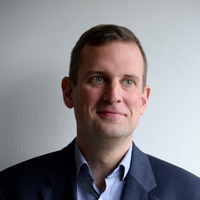
Karin Assmann
Journalist-Academic: practicing and studying journalism.
Phone: 706-542-5033
Address: Athens, Georgia
Phone: 706-542-5033
Address: Athens, Georgia
less
Related Authors
Leif Kramp
Universität Bremen
Tim P. Vos
Michigan State University
Julia Shimf
Freie Universität Berlin
Kristoffer Holt
Linnaeus University
André Haller
University of Applied Sciences Kufstein/Tyrol
Juliane A Lischka
University of Zurich, Switzerland
Anastasiia Aksonova
University of Zurich, Switzerland
Ana Serrano Tellería
University of Castilla-La Mancha
InterestsView All (15)






Uploads
Papers by Karin Assmann
Books by Karin Assmann
before and during the Third Reich to discredit the news media and to undermine
public trust. By 2014, reports of verbal and physical attacks on journalists and news
organizations by individuals calling them Lügenpresse, had again become a frequent
feature of the public discourse in Germany. While the term ‘fake news’ is used to similar
effect and intent in the United States, Lügenpresse is a historically and politically charged
expression of distrust in news media on an institutional level. This research examines
the responses and institutional strategies of 27 news editors and executive editors in
Germany’s leading broadcast, print and online news organizations to the accusations
that they are lying to their audiences. Findings indicate that the reemergence of the term
Lügenpresse, has led to considerable self-reflection within institutions, in an effort to
counter the lack of trust and to demonstratively better serve the public. The main focus
across newsrooms is on improving established processes and on making professional
standards and practices more visible to the audience.
before and during the Third Reich to discredit the news media and to undermine
public trust. By 2014, reports of verbal and physical attacks on journalists and news
organizations by individuals calling them Lügenpresse, had again become a frequent
feature of the public discourse in Germany. While the term ‘fake news’ is used to similar
effect and intent in the United States, Lügenpresse is a historically and politically charged
expression of distrust in news media on an institutional level. This research examines
the responses and institutional strategies of 27 news editors and executive editors in
Germany’s leading broadcast, print and online news organizations to the accusations
that they are lying to their audiences. Findings indicate that the reemergence of the term
Lügenpresse, has led to considerable self-reflection within institutions, in an effort to
counter the lack of trust and to demonstratively better serve the public. The main focus
across newsrooms is on improving established processes and on making professional
standards and practices more visible to the audience.